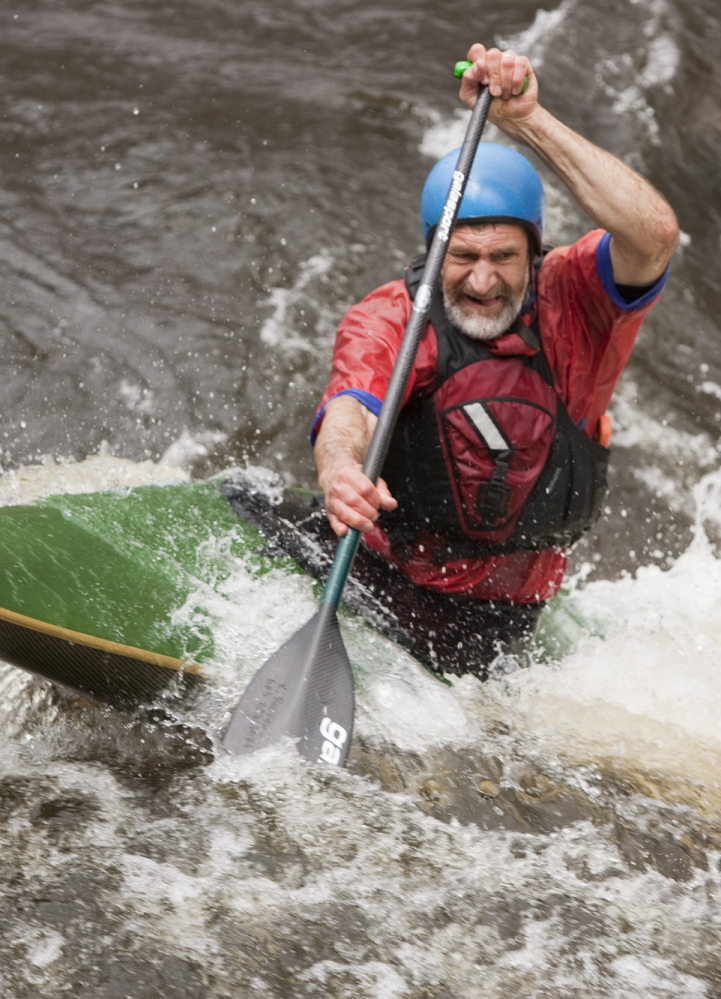SANDY RIVER PLANTATION — Maine’s economy has become increasingly tied to millions of outdoor recreation and ecotourism dollars. Economists estimate that for every dollar spent on tourism, a minimum of $3, to as much as $10, is multiplied through Maine’s economy.
If this is to be sustained, the Maine Wilderness Guides Organization believes that substantial effort must be made to preserve and protect our natural resources, especially our streams, rivers, lakes and wetlands.
The Maine Wilderness Guides Organization is made up of Registered Maine Guides, owners of sporting camps and lodges and supporters who provide a wide range of guiding, educational and conservation-related activities, including travel on remote rivers, ponds and waterways.
MWGO guides are committed to developing the highest level of professional knowledge and skills. This includes, but is not limited to, poling stretches of whitewater in a canoe, hiking with clients to remote mountain streams and ponds for native trout, or paddling quietly a canoe or kayak in hope of photographing a moose or other wildlife.
Regardless of the activity, organization members share a common vision of environmental stewardship and are committed to protecting and conserving the natural environment.
PROTECTING WATER IS GOOD BUSINESS
This is the lens, then, through which the Maine Wilderness Guides Organization views the U.S. Environmental Protection Agency’s new Clean Water Rule. It protects wetlands and small streams that are critical to the health of a variety of fish and wildlife species.
Small tributaries and wetlands function as filters that eventually provide clean water to our large rivers and lakes. Without healthy waterways, fish and wildlife populations are in jeopardy. This affects not only the guiding profession but also the reason people come to Maine to recreate and enjoy our natural environment.
A day spent traveling on the Allagash River Waterway by canoe or fishing the Roach or Magalloway rivers underscores the importance of protecting their supporting watersheds. There are many lesser-known waterways in Maine that are dependent upon clean water as well.
Water flows downhill, and so does pollution. Protecting small streams and tributaries from pollution ensures protection for clean larger bodies of water downstream.
Hunting, fishing, canoeing, hiking and wildlife watching are benefits derived from activities related to the natural environment. Protecting these resources is an investment in Maine’s future. According to the U.S. Fish and Wildlife Service, $1.4 billion was spent on these activities in 2011.
As revenue gained from outdoor recreation multiplies through Maine’s economy, the benefit becomes self-evident for today and for the years that will follow. Protecting small streams and wetlands not only generates recreational dollars for Maine but also reduces significant potential taxpayer cost related to the installation and maintenance of clean water treatment systems.
CLEAN LAKE SAVES MONEY ON FILTRATION
For example, Sebago Lake is directly affected by the quality of water in its surrounding watershed that’s filtered naturally from wetlands and streams. The result is that the Portland Water District, which provides drinking water for about one-sixth of Maine’s population, is one of very few water districts in the country that does not need a filtration plant.
The reality is that there are only about 50 out of the 50,000 water districts in the United States that have filtration waivers.
If the water quality in Sebago Lake declined and the Portland Water District needed to build a filtration plant, the estimated cost would be in excess of $70 million, with about a million or more dollars per year to operate. So there is a significant economic reason to keep small streams and wetlands – nature’s best filters – intact.
On behalf of the Maine Wilderness Guides Organization, I urge U.S. Sens. Susan Collins and Angus King, along with U.S. Reps. Chellie Pingree and Bruce Poliquin, to support and work with the EPA on its new Clean Water Rule. Any attempt to block implementation of the rule, which went into effect May 27, is not in the state of Maine’s best interest.
Clean water is essential not only for members of the Maine Wilderness Guides Organization but also for the thousands of Maine citizens who depend upon clean water for their livelihood.
Send questions/comments to the editors.


